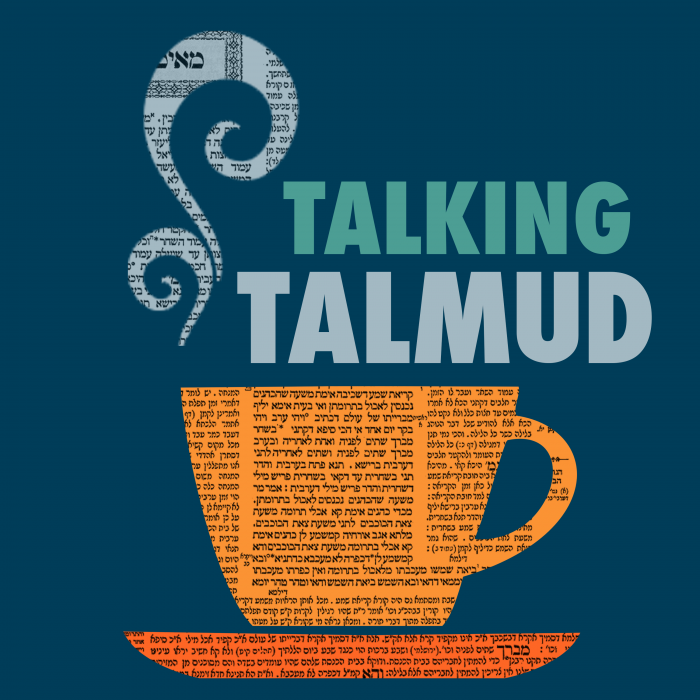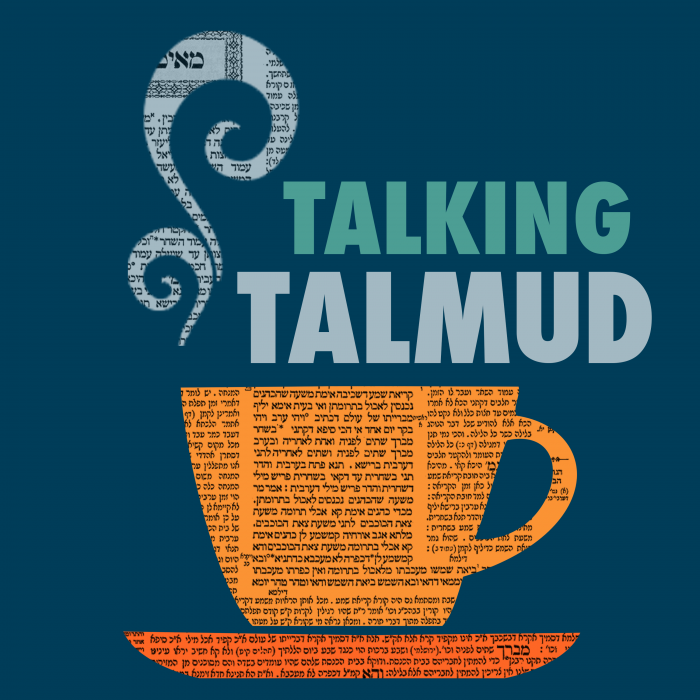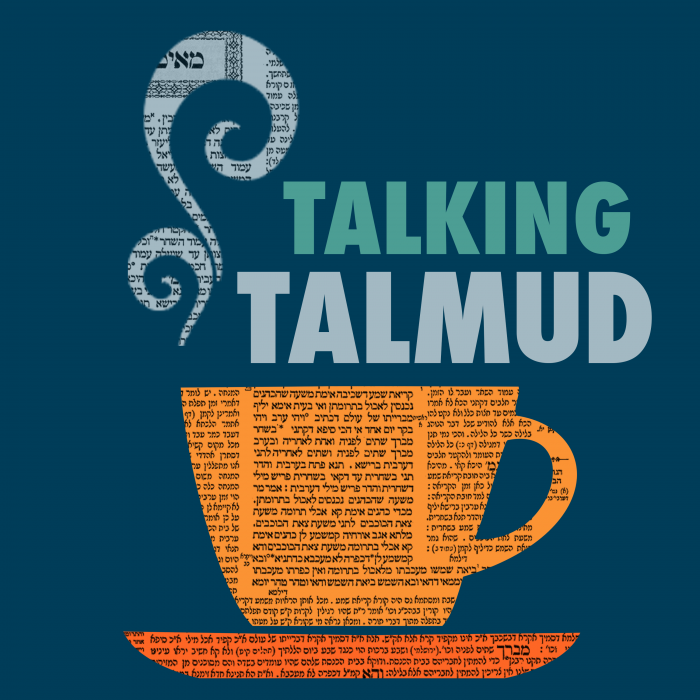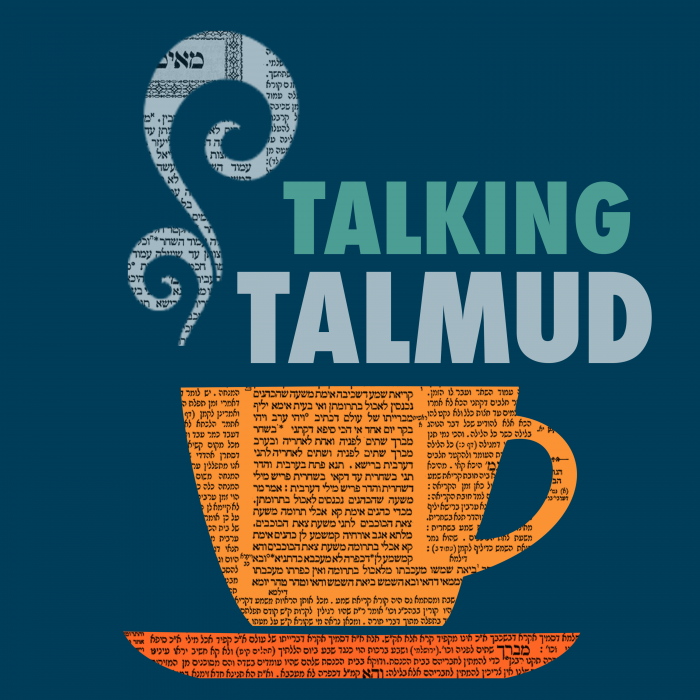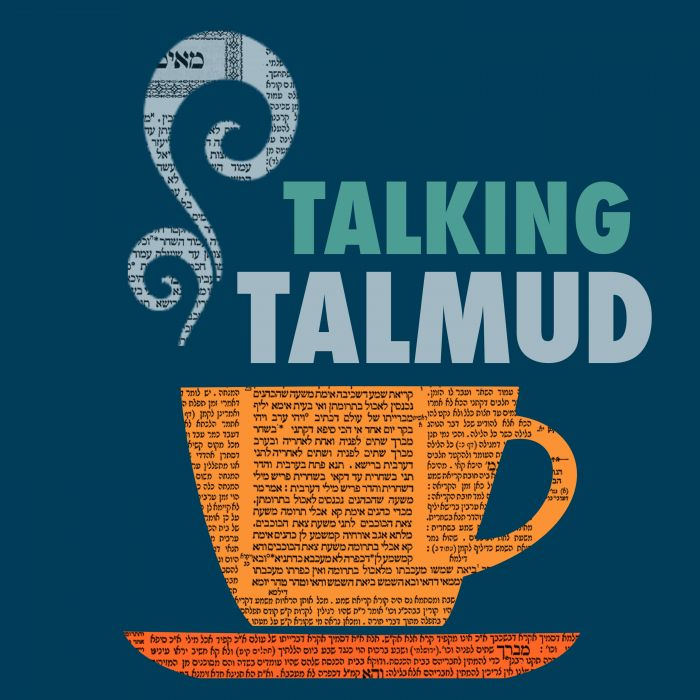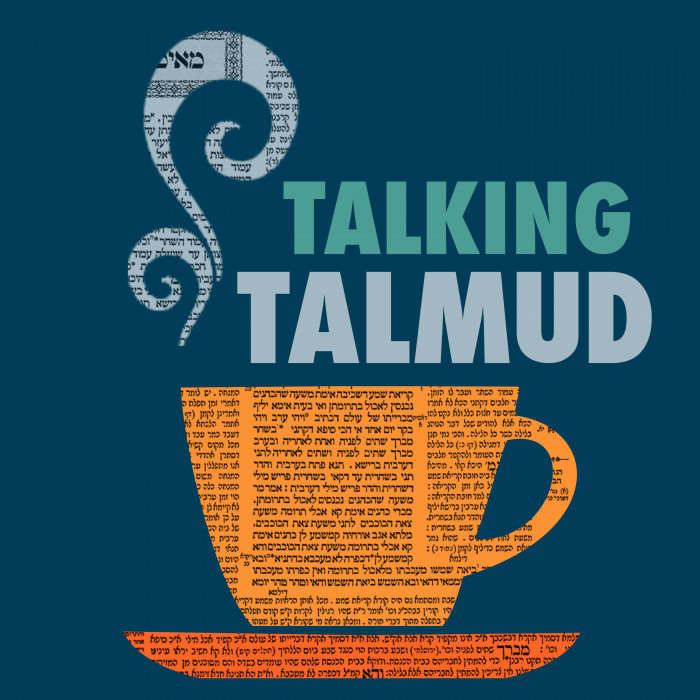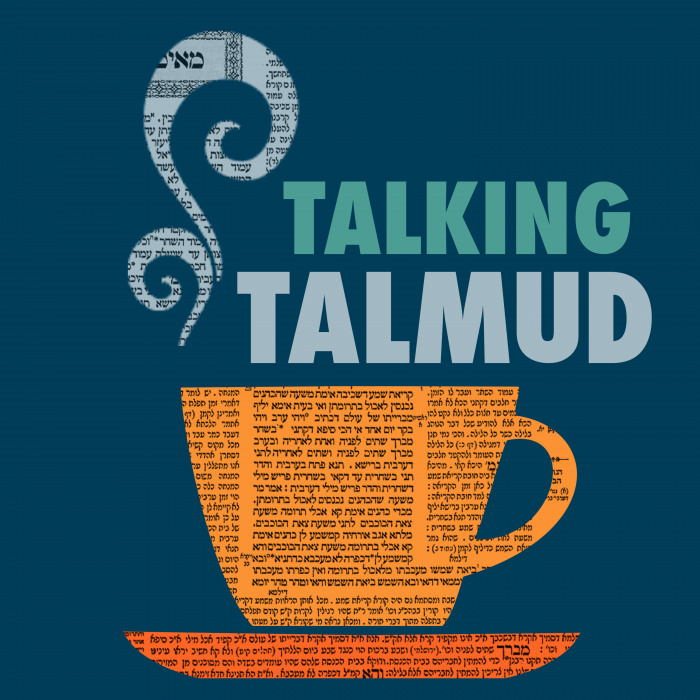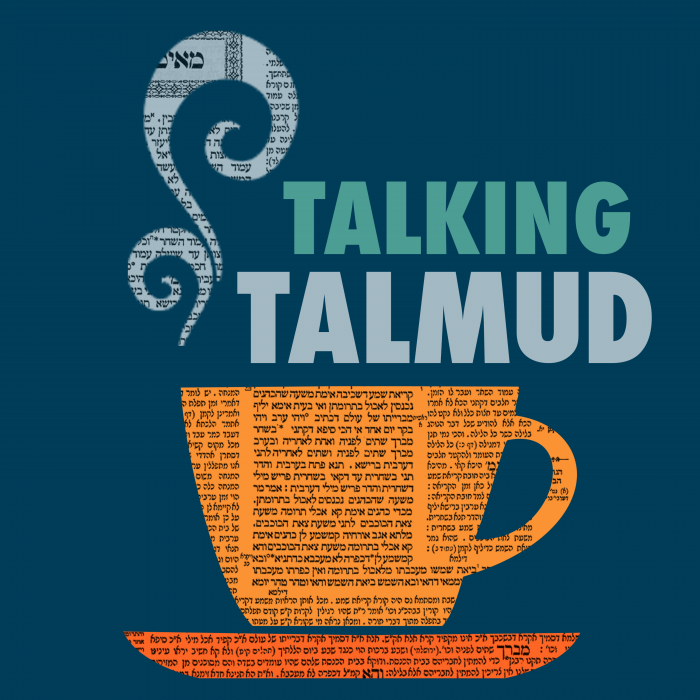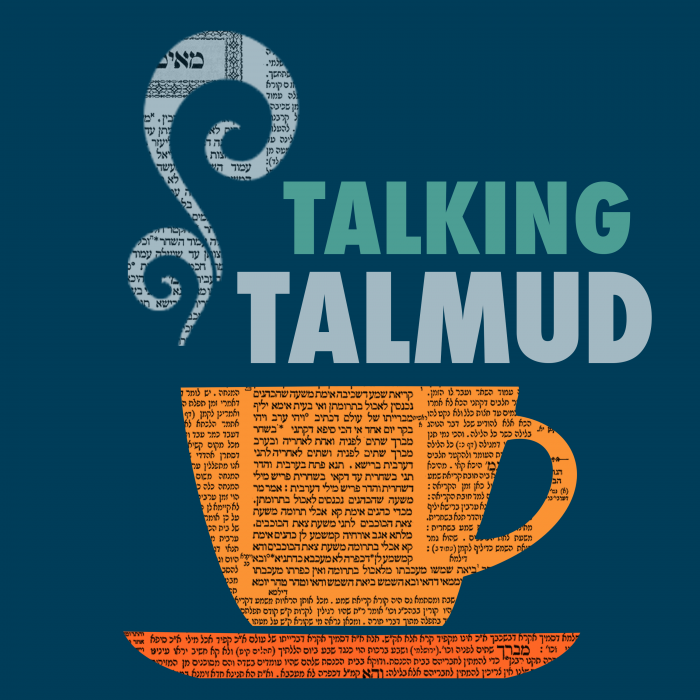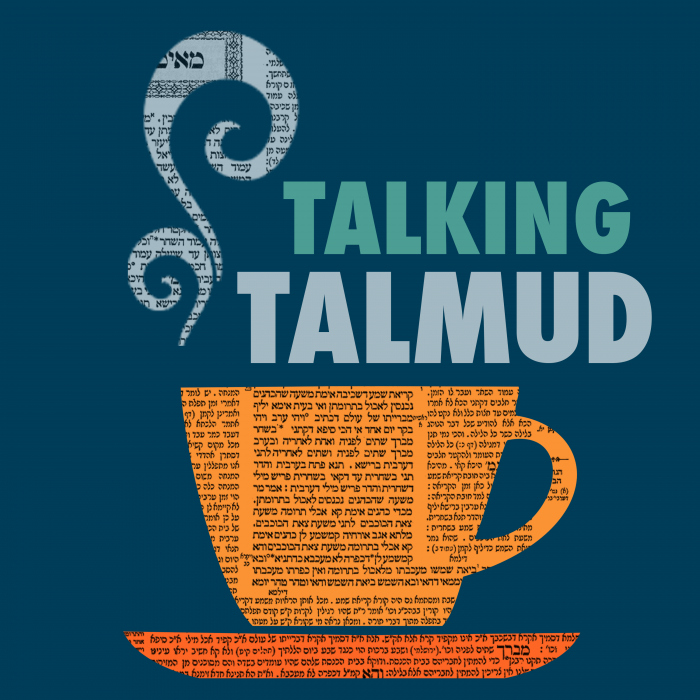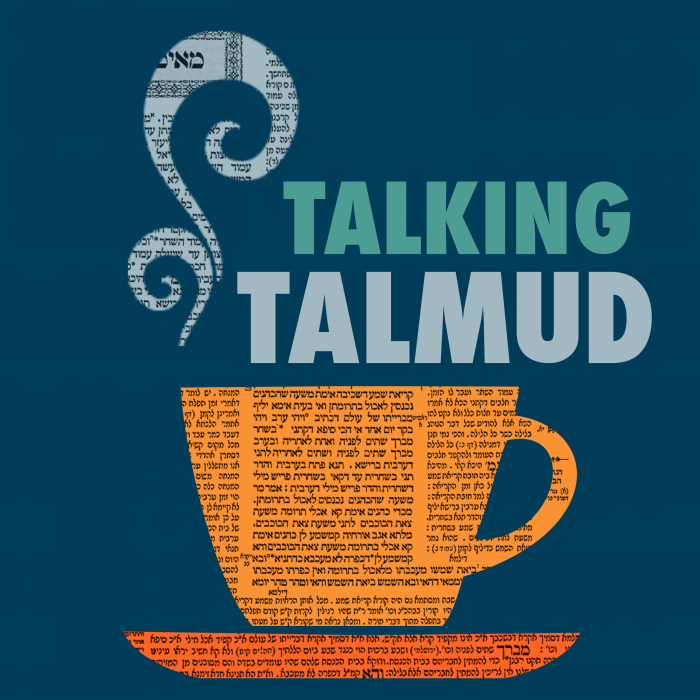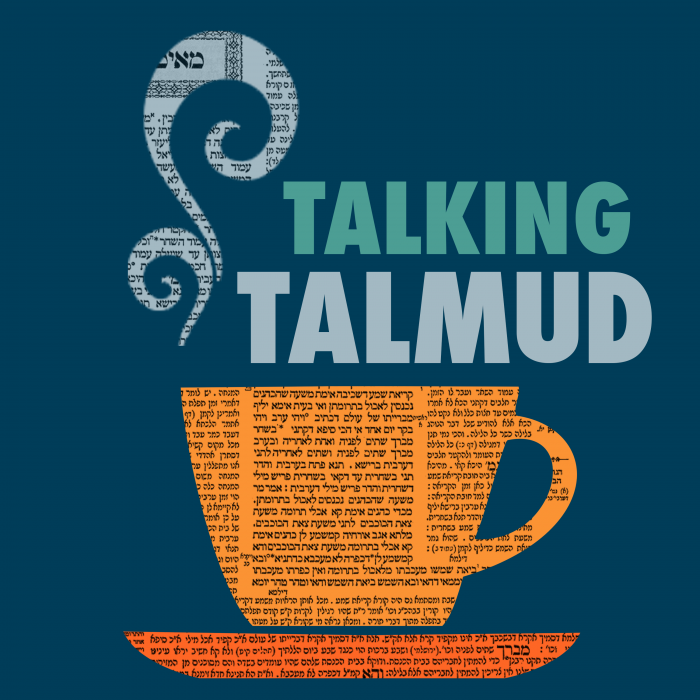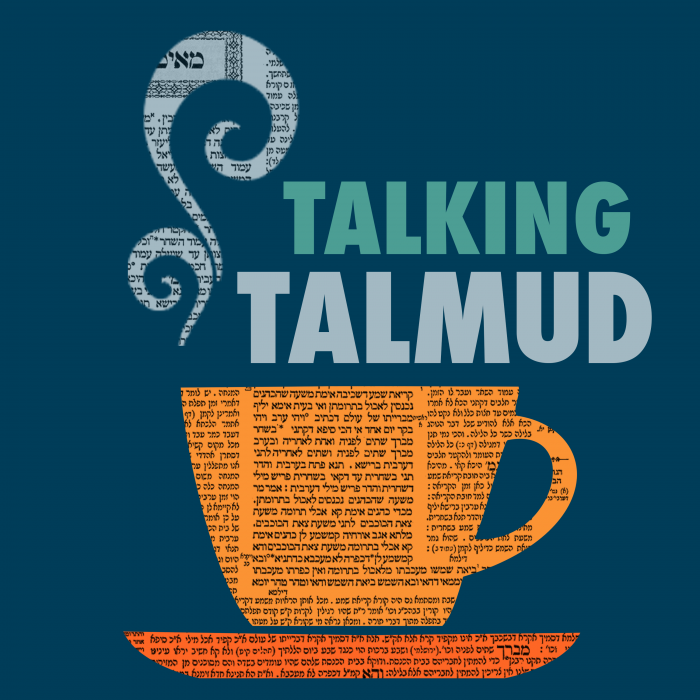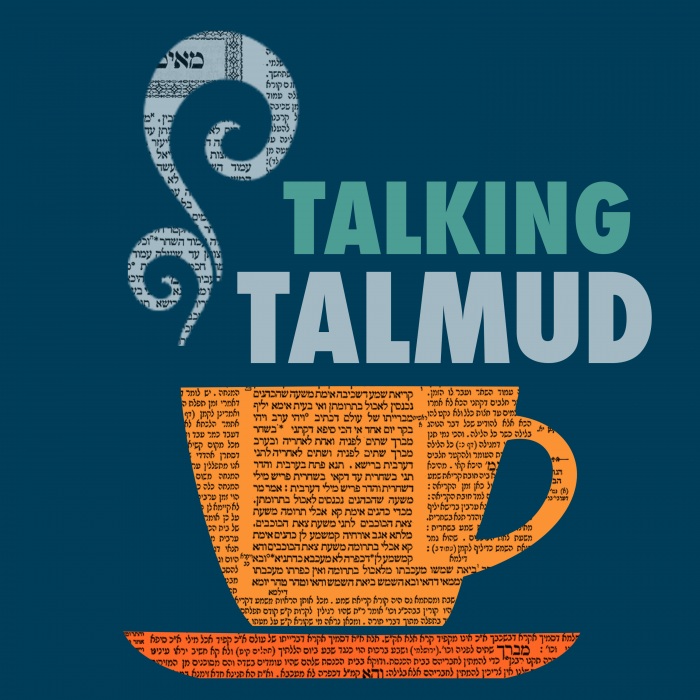It was implied from something Rabbi Zeira said that the blessing the priests said in the temple before shema was “God who created light.” But the gemara rejects this and says that one can interpret that statement in a different way and it could be the blessing of “great love that God has for the Jewish people.” Why were the ten commandments no longer used as part of the liturgy in the temple and outside the temple? What do the priests who are leaving their watch bless those who are beginning their watch? What does this teach you about priests’ behavior in the temple? If someone starts a blessing thinking she is going to drink wine and then remembers that it is beer, and finishes the blessing correctly, does that work? Do we go by the main part of the blessing or the ending? The gemara tries to answer the question from other sources but is unsuccessful.. The gemara brings five statements of Rabba son of Chinnana Saba in the name of Rav: 1. If one doesn’t say emet v’yatziv in the morning or emet v’emuna at night one does not fulfill one’s obligation (what obligation?). Why? 2. During prayer, we bow at baruch and stand up at God’s name. Why? 3. In the ten days of repentance we say “the holy king” and “the king of judgement”. There are those who disagree. What if one forgets to say them? 4. One who can pray for others and doesn’t is considered a sinner. 5. One who pray and is then embarrassed by one’s sin is pardons from all of one’s sins. This is learned from King Saul. The rabbis wanted Parshat Balak to be said daily as part of shema. Why did they want to and why didn’t this happen? Parshat tzitzit was chosen for five themes. Rabbi Elazar ben Azaria and the rabbis argue about whether one needs to mention the exodus from Egypt at night. What is the source of their debate?
This month’s learning is dedicated to the refuah shleima of our dear friend, Phyllis Hecht, גיטל פעשא בת מאשה רחל by all her many friends who love and admire her. Phyllis’ emuna, strength, and positivity are an inspiration.
Want to dedicate learning? Get started here:

Today’s daily daf tools:
This month’s learning is dedicated to the refuah shleima of our dear friend, Phyllis Hecht, גיטל פעשא בת מאשה רחל by all her many friends who love and admire her. Phyllis’ emuna, strength, and positivity are an inspiration.
Today’s daily daf tools:
Delve Deeper
Broaden your understanding of the topics on this daf with classes and podcasts from top women Talmud scholars.
New to Talmud?
Check out our resources designed to help you navigate a page of Talmud – and study at the pace, level and style that fits you.
The Hadran Women’s Tapestry
Meet the diverse women learning Gemara at Hadran and hear their stories.
Berakhot 12
אֶלָּא, אִי אָמְרַתְּ ״אַהֲבָה רַבָּה״ הֲווֹ אָמְרִי, מַאי בְּרָכוֹת אֵין מְעַכְּבוֹת זוֹ אֶת זוֹ? דִּלְמָא הַאי דְּלָא אָמְרִי ״יוֹצֵר אוֹר״ מִשּׁוּם דְּלָא מְטָא זְמַן ״יוֹצֵר אוֹר״, וְכִי מְטָא זְמַן ״יוֹצֵר אוֹר״ הֲווֹ אָמְרִי.
However, if you say that they would omit: Who creates light, and would recite: An abounding love, on what basis would you conclude that failure to recite one of the blessings recited before Shema does not prevent one from reciting the other? In that case, one could offer another reason why only a single blessing is recited. Perhaps the fact that they did not recite: Who creates light was because the time for the recitation of: Who creates light, had not yet arrived, as the sun had yet to rise. The blessings of the priestly watch are recited in the early morning hours, long before sunrise. However, afterward, when the time to recite: Who creates light arrived, they would recite it. From the conclusion drawn by Rabbi Shimon ben Lakish, that failure to recite one of the blessings recited before Shema does not prevent one from reciting the other, it is clear that the blessing recited by the members of the priestly watch was: Who creates light.
וְאִי מִכְּלָלָא מַאי?
As this deductive reasoning seems coherent and convincing, the Gemara asks: And if this halakha is based on inference, and not on an explicit statement, what of it? There seems to be no other way to interpret Rabbi Shimon ben Lakish’s statement.
דְּאִי מִכְּלָלָא, לְעוֹלָם ״אַהֲבָה רַבָּה״ הֲווֹ אָמְרִי. וְכִי מְטָא זְמַן ״יוֹצֵר אוֹר״ הֲווֹ אָמְרִי לֵיהּ. וּמַאי ״בְּרָכוֹת אֵין מְעַכְּבוֹת זוֹ אֶת זוֹ״ — סֵדֶר בְּרָכוֹת.
The Gemara answers: If this conclusion were based on an inference, one could say that actually they recited: An abounding love, and when the time to recite: Who creates light arrived, they would recite it. In that case, what is the meaning of: Failure to recite one of the blessings recited before Shema does not prevent one from reciting the other? Rabbi Shimon ben Lakish meant that failure to recite the correct order of the blessings does not prevent one from fulfilling his obligation. Even if one recites: An abounding love before: Who creates light, he fulfills his obligation. Rabbi Shimon ben Lakish did not refer to a case where only one of the blessings was recited. Consequently, one cannot infer from his statement his opinion regarding the identity of the single blessing.
וְקוֹרִין עֲשֶׂרֶת הַדִּבְּרוֹת ״שְׁמַע״, ״וְהָיָה אִם שָׁמוֹעַ״, ״וַיֹּאמֶר״, ״אֱמֶת וְיַצִּיב״, וַעֲבוֹדָה, וּבִרְכַּת כֹּהֲנִים.
The Gemara related above that the priests in the Temple read the Ten Commandments, along with the sections of Shema, VeHaya im Shamoa, VaYomer, True and Firm, Avoda, and the priestly benediction.
אָמַר רַב יְהוּדָה אָמַר שְׁמוּאֵל: אַף בִּגְבוּלִין בִּקְּשׁוּ לִקְרוֹת כֵּן, אֶלָּא שֶׁכְּבָר בִּטְּלוּם מִפְּנֵי תַּרְעוֹמֶת הַמִּינִין.
Rav Yehuda said that Shmuel said: Even in the outlying areas, outside the Temple, they sought to recite the Ten Commandments in this manner every day, as they are the basis of the Torah (Rambam), but they had already abolished recitation of the Ten Commandments due to the grievance of the heretics, who argued that the entire Torah, with the exception of the Ten Commandments, did not emanate from God (Jerusalem Talmud). If the Ten Commandments were recited daily, that would lend credence to their claim, so their recitation was expunged from the daily prayers.
תַּנְיָא נָמֵי הָכִי, רַבִּי נָתָן אוֹמֵר: בִּגְבוּלִין בִּקְּשׁוּ לִקְרוֹת כֵּן, אֶלָּא שֶׁכְּבָר בִּטְּלוּם מִפְּנֵי תַּרְעוֹמֶת הַמִּינִין.
That was also taught in a baraita that Rabbi Natan says: In the outlying areas, they sought to recite the Ten Commandments in this manner, but they had already abolished their recitation due to the grievance of the heretics.
רַבָּה בַּר בַּר חַנָּה סְבַר לְמִקְבְּעִינְהוּ בְּסוּרָא, אֲמַר לֵיהּ רַב חִסְדָּא: כְּבָר בִּטְּלוּם מִפְּנֵי תַּרְעוֹמֶת הַמִּינִין.
The Gemara relates that several Sages sought to reinstitute recitation of the Ten Commandments, as Rabba bar bar Ḥana thought to institute this in the city of Sura, but Rav Ḥisda said to him: They already abolished them due to the grievance of the heretics.
אֲמֵימַר סְבַר לְמִקְבְּעִינְהוּ בִּנְהַרְדְּעָא, אֲמַר לֵיהּ רַב אָשֵׁי: כְּבָר בִּטְּלוּם מִפְּנֵי תַּרְעוֹמֶת הַמִּינִין.
So too, Ameimar thought to institute this in the city of Neharde’a. Rav Ashi, the most prominent of the Sages in that generation, said to him: They already abolished them due to the grievance of the heretics.
וּבְשַׁבָּת מוֹסִיפִין בְּרָכָה אַחַת לַמִּשְׁמָר הַיּוֹצֵא. מַאי בְּרָכָה אַחַת? אָמַר רַבִּי חֶלְבּוֹ: מִשְׁמָר הַיּוֹצֵא אוֹמֵר לַמִּשְׁמָר הַנִּכְנָס: ״מִי שֶׁשִּׁכֵּן אֶת שְׁמוֹ בַּבַּיִת הַזֶּה, הוּא יַשְׁכִּין בֵּינֵיכֶם אַהֲבָה וְאַחְוָה וְשָׁלוֹם וְרֵיעוּת״.
We learned in a mishna in tractate Tamid that on Shabbat a single blessing is added to bless the outgoing priestly watch. The Gemara asks: What is that single blessing? Rabbi Ḥelbo said: As they finished their service, the outgoing priestly watch would say to the incoming priestly watch: May He who caused His Name to dwell in this house cause love and brotherhood, peace and camaraderie to dwell among you.
מָקוֹם שֶׁאָמְרוּ לְהַאֲרִיךְ. פְּשִׁיטָא הֵיכָא דְּקָא נָקֵיט כָּסָא דְחַמְרָא בִּידֵיהּ וְקָסָבַר דְּשִׁכְרָא הוּא, וּפָתַח וּמְבָרֵךְ אַדַּעְתָּא דְשִׁכְרָא, וְסַיֵּים בִּדְחַמְרָא — יָצָא. דְּאִי נָמֵי אִם אָמַר ״שֶׁהַכֹּל נִהְיֶה בִּדְבָרוֹ״ — יָצָא. דְּהָא תְּנַן: עַל כּוּלָּם אִם אָמַר ״שֶׁהַכֹּל נִהְיֶה בִּדְבָרוֹ״ — יָצָא.
We learned in the mishna: Where the Sages said to recite a long blessing, one may not shorten it, and vice-versa. The Gemara proceeds to address a particular problem arising from conclusions drawn from this mishna. Before addressing the primary problem, however, a simpler, secondary issue is raised: Obviously, in a case where one took a cup of wine in his hand and thought it was beer, and began reciting the blessing thinking it was beer, i.e., he intended to recite the appropriate blessing on beer: By Whose word all things came to be, and upon realizing that it was wine, he concluded the blessing with that which is recited over wine: Who creates the fruit of the vine, he fulfilled his obligation. In that case, even had he recited: By Whose word all things came to be, as he originally intended, he would have fulfilled his obligation, as we learned in a mishna: If one recited the general blessing: By Whose word all things came to be, over all food items, he fulfilled his obligation after the fact, even if ab initio another blessing was instituted to recite before eating that food. Therefore, if he reconsidered and concluded the blessing with the ending of the blessing over wine, he fulfilled his obligation.
אֶלָּא הֵיכָא דְּקָא נָקֵיט כָּסָא דְשִׁכְרָא בִּידֵיהּ וְקָסָבַר דְּחַמְרָא הוּא, פְּתַח וּבָרֵיךְ אַדַּעְתָּא דְחַמְרָא, וְסַיֵּים בִּדְשִׁכְרָא, מַאי?
However in a case where one took a cup of beer in his hand and thought it was wine, and began reciting the blessing thinking it was wine, meaning he intended to recite: Who creates the fruit of the vine, and upon realizing that it was beer he concluded the blessing with that which is recited over beer: By Whose word all things came to be, what is the halakha?
בָּתַר עִיקַּר בְּרָכָה אָזְלִינַן, אוֹ בָּתַר חֲתִימָה אָזְלִינַן?
Ostensibly, this blessing is comprised of two sections. The first section, during which he intended to recite: Who creates the fruit of the vine, cannot fulfill his obligation as it is an inappropriate blessing to recite over beer. However, in the second section he recited: By Whose word all things came to be, the appropriate blessing. The dilemma, then, is: Do we follow the essence of the blessing, the first section, or do we follow the conclusion of the blessing?
תָּא שְׁמַע: שַׁחֲרִית, פָּתַח בְּ״יוֹצֵר אוֹר״ וְסִיֵּים בְּ״מַעֲרִיב עֲרָבִים״ — לֹא יָצָא. פָּתַח בְּ״מַעֲרִיב עֲרָבִים״ וְסִיֵּים בְּ״יוֹצֵר אוֹר״ — יָצָא.
Come and hear a proof from what was taught in a baraita with regard to a similar case: If, in the morning prayer, one began the blessings prior to the recitation of Shema appropriately with: Who creates light, and concluded with the formula of the evening prayer: Who brings on evenings, he did not fulfill his obligation. However, if one did the opposite, and commenced with: Who brings on evenings, and concluded with: Who creates light, he fulfilled his obligation.
עַרְבִית, פָּתַח בְּ״מַעֲרִיב עֲרָבִים״ וְסִיֵּים בְּ״יוֹצֵר אוֹר״ — לֹא יָצָא. פָּתַח בְּ״יוֹצֵר אוֹר״ וְסִיֵּים בְּ״מַעֲרִיב עֲרָבִים״ — יָצָא.
Similarly, if, in the evening prayer, one commenced the recitation of Shema with: Who brings on evenings and concluded with: Who creates light, he did not fulfill his obligation. If one commenced with: Who creates light and concluded with: Who brings on evenings, he fulfilled his obligation.
כְּלָלוֹ שֶׁל דָּבָר: הַכֹּל הוֹלֵךְ אַחַר הַחִתּוּם.
The baraita summarizes that the general principle is: Everything follows the conclusion of the blessing. Based on this principle, the question with regard to a blessing recited over food and drink posed above can be resolved.
שָׁאנֵי הָתָם דְּקָאָמַר ״בָּרוּךְ יוֹצֵר הַמְּאוֹרוֹת״.
This proof is rejected: There, in the case of the blessing recited over the radiant lights, it is different, as one recites: Blessed…Who forms the radiant lights, and similarly, in the evening one recites: Blessed…Who brings on evenings. Since these are long blessings that conclude with a second blessing summarizing their content, one could assert that everything follows the conclusion. However, in the case of short blessings, such as: By Whose word all things came to be, or: Who creates the fruit of the vine, ostensibly, if there is a problem with the first part of the blessing, the entire blessing is nullified.
הָנִיחָא לְרַב דְּאָמַר כָּל בְּרָכָה שֶׁאֵין בָּהּ הַזְכָּרַת הַשֵּׁם אֵינָהּ בְּרָכָה — שַׁפִּיר. אֶלָּא לְרַבִּי יוֹחָנָן דְּאָמַר כָּל בְּרָכָה שֶׁאֵין בָּהּ מַלְכוּת אֵינָהּ בְּרָכָה, מַאי אִיכָּא לְמֵימַר?
The distinction between the blessing recited over the radiant lights and the blessings recited over food and drink stems from the assumption that the conclusion: Blessed…Who fashions the radiant lights, is a complete, independent blessing. However, this is not necessarily so. This works out well according to Rav, who said: Any blessing that does not include mention of God’s name is not considered a blessing, and since: Who creates light, includes God’s name, it constitutes a complete, independent blessing. However, according to Rabbi Yoḥanan, who said: Any blessing that does not include mention of God’s sovereignty, i.e., our God, King of the universe, is not considered a blessing, what can be said to distinguish between the conclusion of the blessings over food and drink and the blessing over the radiant lights? Since the conclusion: Who creates light, does not mention God’s sovereignty, it does not constitute a complete, independent blessing.
אֶלָּא כֵּיוָן דְּאָמַר רַבָּה בַּר עוּלָּא: כְּדֵי לְהַזְכִּיר מִדַּת יוֹם בַּלַּיְלָה וּמִדַּת לַיְלָה בַּיּוֹם, כִּי קָאָמַר בְּרָכָה וּמַלְכוּת מֵעִיקָּרָא — אַתַּרְוַיְיהוּ קָאָמַר.
The Gemara responds: Rather, Rabbi Yoḥanan also holds that the blessing over the radiant lights is a complete blessing. Since Rabba bar Ulla said: Who creates darkness, is mentioned during the day and: Rolling away the light before the darkness, is mentioned at night in order to mention the attribute of day at night and the attribute of night in the day, the beginning of the blessing in which God’s sovereignty is mentioned day and night is appropriate to both day and night, and when one recites the blessing with God’s name and mentions God’s sovereignty at the beginning of the blessing, it refers to both day and night. Therefore, no proof can be cited from the blessing over the radiant lights to the blessings recited over food and drink.
תָּא שְׁמַע מִסֵּיפָא: ״כְּלָלוֹ שֶׁל דָּבָר: הַכֹּל הוֹלֵךְ אַחַר הַחִתּוּם״. כְּלָלוֹ שֶׁל דָּבָר לְאֵתוּיֵי מַאי? לָאו לְאֵתוּיֵי הָא דַּאֲמַרַן?
The Gemara attempts to cite an additional proof: Come and hear another solution based on what we learned in the latter clause of the baraita cited above: The general principle is: Everything follows the conclusion of the blessing. What does the phrase: The general principle is, come to include beyond the detailed example cited in the baraita? Does it not come to include the case that we stated, that both in the case of a long blessing and the case of a short blessing, the conclusion of the blessing is the determining factor?
לָא, לְאֵתוּיֵי נַהֲמָא וְתַמְרֵי. הֵיכִי דָמֵי? אִילֵּימָא דַּאֲכַל נַהֲמָא, וְקָסָבַר דְּתַמְרֵי אֲכַל, וּפְתַח אַדַּעְתָּא דְתַמְרֵי וְסַיֵּים בִּדְנַהֲמָא — הַיְינוּ בַּעְיָין!
The Gemara rejects this: No, the principle is cited to include a case of bread and dates. The Gemara clarifies: What are the circumstances of the dilemma with regard to the blessings on these food items? If you say that it is a case where one ate bread and thought that he ate dates, and commenced reciting the blessing thinking it was dates; then, upon realizing that it was bread, he concluded the blessing with that which is recited over bread, isn’t that our dilemma, as this case is identical to the one involving wine and beer?
לָא צְרִיכָא: כְּגוֹן דַּאֲכַל תַּמְרֵי, וְקָסָבַר נַהֲמָא אֲכַל, וּפְתַח בִּדְנַהֲמָא, וְסַיֵּים בִּדְתַמְרֵי [— יָצָא]. דַּאֲפִילּוּ סַיֵּים בִּדְנַהֲמָא — נָמֵי יָצָא.
The Gemara answers: No; this general principle is only necessary to teach a special case, where one ate dates and thought that he ate bread, and commenced reciting the blessing thinking they were bread. Upon realizing that they were dates, he concluded the blessing with that which is recited over dates. In that case he fulfilled his obligation, as even had he concluded the blessing with that which is recited over bread, he would have fulfilled his obligation.
מַאי טַעְמָא — דְּתַמְרֵי נָמֵי מֵיזָן זָיְינִי.
What is the reason that had he concluded with the blessing recited over bread he would have fulfilled his obligation to recite a blessing over dates? This is because dates also provide a person sustenance. While ab initio one should not recite the blessing for bread over dates, after the fact, if one did so, he fulfilled his obligation. It is with regard to this particular situation that the baraita established the principle: Everything follows the conclusion of the blessing. Ultimately, the dilemma regarding a blessing with an inappropriate opening and an appropriate conclusion remains unresolved.
The Gemara proceeds to discuss the formula for the blessings recited along with Shema.
אָמַר רַבָּה בַּר חִינָּנָא סָבָא מִשְּׁמֵיהּ דְּרַב: כָּל שֶׁלֹּא אָמַר ״אֱמֶת וְיַצִּיב״ שַׁחֲרִית, וֶ״אֱמֶת וֶאֱמוּנָה״ עַרְבִית — לֹא יָצָא יְדֵי חוֹבָתוֹ, שֶׁנֶּאֱמַר: ״לְהַגִּיד בַּבֹּקֶר חַסְדֶּךָ וֶאֱמוּנָתְךָ בַּלֵּילוֹת״.
Rabba bar Ḥinnana Sava said in the name of Rav: One who did not recite: True and Firm [emet veyatziv] at the beginning of the blessing of redemption that follows Shema in the morning prayer, and: True and Trustworthy [emet ve’emuna] in the evening prayer, he did not fulfill his obligation. An allusion to the difference in formulation between morning and evening is, as it is stated: “To declare Your kindness in the morning and Your faith in the nights” (Psalms 92:3). In the morning, one must mention God’s loving-kindness, while in the evening one is required to emphasize the aspect of faith.
וְאָמַר רַבָּה בַּר חִינָּנָא [סָבָא] מִשְּׁמֵיהּ דְּרַב: הַמִּתְפַּלֵּל, כְּשֶׁהוּא כּוֹרֵעַ כּוֹרֵעַ בְּבָרוּךְ, וּכְשֶׁהוּא זוֹקֵף — זוֹקֵף בַּשֵּׁם
And Rabba bar Ḥinnana Sava said in the name of Rav: One who is praying, when he bows in the appropriate places, he bows when he says: Blessed, and when he subsequently stands upright, he stands upright when he says God’s name.
אָמַר שְׁמוּאֵל: מַאי טַעְמָא דְרַב — דִּכְתִיב: ״ה׳ זוֹקֵף כְּפוּפִים״.
Shmuel, who was Rav’s colleague and significantly outlived him, said: What is Rav’s reason for saying that one should stand upright at the mention of God’s name? As it is written: “The Lord, who raises the bowed” (Psalms 146:8); one stands upright at the mention of God’s name to recall that it is God who raises the bowed.
מֵתִיבִי: ״מִפְּנֵי שְׁמִי נִחַת הוּא״.
The Gemara raises an objection based on what we learned in praise of a priest: “And he was afraid before My name” (Malachi 2:5), indicating that one must be humbled and not upright before God’s name.
מִי כְּתִיב ״בִּשְׁמִי״? ״מִפְּנֵי שְׁמִי״ כְּתִיב.
The Gemara responds: Is it written: At My name? Before My name, is written, meaning that one is humbled and bows prior to the mention of God’s name, when he says: Blessed.
אֲמַר לֵיהּ שְׁמוּאֵל לְחִיָּיא בַּר רַב: בַּר אוֹרְיָאן, תָּא וְאֵימָא לְךָ מִלְּתָא מְעַלַּיְיתָא דְּאָמַר אֲבוּךְ. הָכִי אָמַר אֲבוּךְ: כְּשֶׁהוּא כּוֹרֵעַ — כּוֹרֵעַ בְּ״בָרוּךְ״, כְּשֶׁהוּא זוֹקֵף — זוֹקֵף בַּשֵּׁם.
The Gemara relates: Shmuel said to Ḥiyya bar Rav: Son of Torah, come and I will tell you a great saying that your father said. Your father said the following: When one bows, he bows when he says: Blessed, and when he stands upright, he stands upright when he says God’s name.
רַב שֵׁשֶׁת, כִּי כָּרַע — כָּרַע כְּחִיזְרָא. כִּי קָא זָקֵיף — זָקֵיף כְּחִיוְיָא.
With regard to bowing, the Gemara relates: When Rav Sheshet bowed he bowed all at once, like a cane, without delay. When he stood upright he stood upright like a snake, lifting himself slowly, demonstrating that the awe of God was upon him in the manner that he bowed and stood upright (HaBoneh).
וְאָמַר רַבָּה בַּר חִינָּנָא סָבָא מִשְּׁמֵיהּ דְּרַב כָּל הַשָּׁנָה כּוּלָּהּ אָדָם מִתְפַּלֵּל ״הָאֵל הַקָּדוֹשׁ״, ״מֶלֶךְ אוֹהֵב צְדָקָה וּמִשְׁפָּט״, חוּץ מֵעֲשָׂרָה יָמִים שֶׁבֵּין רֹאשׁ הַשָּׁנָה וְיוֹם הַכִּפּוּרִים, שֶׁמִּתְפַּלֵּל ״הַמֶּלֶךְ הַקָּדוֹשׁ״, וְ״הַמֶּלֶךְ הַמִּשְׁפָּט״.
And, with regard to the formulation of the blessings, Rabba bar Ḥinnana Sava said in the name of Rav: Throughout the year a person prays and concludes the third blessing of the Amida prayer with: The holy God, and concludes the blessing regarding the restoration of justice to Israel with: King who loves righteousness and justice, with the exception of the ten days between Rosh HaShana and Yom Kippur, the Ten Days of Atonement. These days are comprised of Rosh HaShana, Yom Kippur, and the seven days in between, when one emphasizes God’s sovereignty, and so when he prays he concludes these blessings with: The holy King and: The King of justice, i.e., the King who reveals Himself through justice.
וְרַבִּי אֶלְעָזָר אָמַר אֲפִילּוּ אָמַר ״הָאֵל הַקָּדוֹשׁ״ — יָצָא. שֶׁנֶּאֱמַר: ״וַיִּגְבַּה ה׳ צְבָאוֹת בַּמִּשְׁפָּט וְהָאֵל הַקָּדוֹשׁ נִקְדָּשׁ בִּצְדָקָה״. אֵימָתַי ״וַיִּגְבַּה ה׳ צְבָאוֹת בַּמִּשְׁפָּט״ — אֵלּוּ עֲשָׂרָה יָמִים שֶׁמֵּרֹאשׁ הַשָּׁנָה וְעַד יוֹם הַכִּפּוּרִים, וְקָאָמַר ״הָאֵל הַקָּדוֹשׁ״.
In contrast, Rabbi Elazar said that one need not be exacting, and even if he said: The holy God during those ten days, he fulfilled his obligation, as it is stated: “And the Lord of Hosts is exalted through justice, and the holy God is sanctified through righteousness” (Isaiah 5:16). The Gemara explains: When is it appropriate to describe God with terms like: And the Lord of Hosts is exalted through justice? It is appropriate when God reveals Himself through justice, during the ten days between Rosh HaShana and Yom Kippur, yet the verse says: The holy God. This appellation sufficiently underscores God’s transcendence, and there is no need to change the standard formula.
מַאי הֲוָה עֲלַהּ?
The Gemara asks: What is the conclusion that was reached about this halakha?
אָמַר רַב יוֹסֵף: ״הָאֵל הַקָּדוֹשׁ״ וּ״מֶלֶךְ אוֹהֵב צְדָקָה וּמִשְׁפָּט״. רַבָּה אָמַר: ״הַמֶּלֶךְ הַקָּדוֹשׁ״ וְ״הַמֶּלֶךְ הַמִּשְׁפָּט״. וְהִלְכְתָא כְּרַבָּה.
Here, too, opinions differ: Rav Yosef said in accordance with the opinion of Rabbi Elazar: There is no need to change the standard formula: The holy God and: King Who loves righteousness and justice. Rabba said in accordance with the opinion of Rav: The holy King and: The King of justice. The Gemara concludes: The halakha is in accordance with the opinion of Rabba.
וְאָמַר רַבָּה בַּר חִינָּנָא סָבָא מִשְּׁמֵיהּ דְּרַב: כֹּל שֶׁאֶפְשָׁר לוֹ לְבַקֵּשׁ רַחֲמִים עַל חֲבֵירוֹ וְאֵינוֹ מְבַקֵּשׁ — נִקְרָא ״חוֹטֵא״. שֶׁנֶּאֱמַר: ״גַּם אָנֹכִי חָלִילָה לִּי מֵחֲטֹא לַה׳ מֵחֲדֹל לְהִתְפַּלֵּל בַּעַדְכֶם״.
And Rabba bar Ḥinnana Sava said in the name of Rav: Anyone who can ask for mercy on behalf of another, and does not ask is called a sinner, as it is stated following Samuel’s rebuke of the people: “As for me, far be it from me that I should transgress against the Lord in ceasing to pray for you, but I will teach you the good and the right way” (I Samuel 12:23). Had Samuel refrained from prayer, he would have committed a sin.
אָמַר רָבָא: אִם תַּלְמִיד חָכָם הוּא, צָרִיךְ שֶׁיַּחֲלֶה עַצְמוֹ עָלָיו.
Rava said: If the one in need of mercy is a Torah scholar, it is insufficient to merely pray on his behalf. Rather, one must make himself ill worrying about him.
מַאי טַעְמָא? אִילֵּימָא מִשּׁוּם דִּכְתִיב: ״וְאֵין חֹלֶה מִכֶּם עָלַי וְאֵין גּוֹלֶה אֶת אָזְנִי״ — דִּילְמָא מֶלֶךְ שָׁאנֵי. אֶלָּא מֵהָכָא: ״וַאֲנִי בַּחֲלוֹתָם לְבוּשִׁי וְגוֹ׳״.
The Gemara seeks to clarify the source of this halakha. What is the reason that one must make oneself ill over a Torah scholar in need of mercy? If you say that it is because of what Saul said to his men, as it is written: “And there is none of you that is ill over me or tells unto me” (I Samuel 22:8), meaning that because Saul was a Torah scholar, it would have been appropriate for people to make themselves ill worrying about him; this is not an absolute proof. Perhaps a king is different, and excessive worry is appropriate in that case. Rather, proof that one must make oneself ill over a Torah scholar in need for mercy is from here: When David speaks of his enemies, Doeg and Ahitophel, who were Torah scholars, he says: “But for me, when they were sick, my clothing was sackcloth, I afflicted my soul with fasting” (Psalms 35:13). One must be concerned to the extent that he dresses in sackcloth and fasts for the recovery of a Torah scholar.
וְאָמַר רַבָּה בַּר חִינָּנָא סָבָא מִשְּׁמֵיהּ דְּרַב: כָּל הָעוֹשֶׂה דְּבַר עֲבֵירָה וּמִתְבַּיֵּישׁ בּוֹ — מוֹחֲלִין לוֹ עַל כָּל עֲוֹנוֹתָיו. שֶׁנֶּאֱמַר: ״לְמַעַן תִּזְכְּרִי וָבֹשְׁתְּ וְלֹא יִהְיֶה לָּךְ עוֹד פִּתְחוֹן פֶּה מִפְּנֵי כְּלִמָּתֵךְ בְּכַפְּרִי לָךְ לְכָל אֲשֶׁר עָשִׂית נְאֻם ה׳ אֱלֹהִים״.
And Rabba bar Ḥinnana Sava said in the name of Rav: One who commits an act of transgression and is ashamed of it, all of his transgressions are forgiven. Shame is a sign that one truly despises his transgressions and that shame has the power to atone for his actions (Rabbi Yoshiyahu Pinto), as it is stated: “In order that you remember, and be embarrassed, and never open your mouth anymore, because of your shame, when I have forgiven you for all that you have done, said the Lord, God” (Ezekiel 16:63).
דִּילְמָא צִבּוּר שָׁאנֵי. אֶלָּא מֵהָכָא: ״וַיֹּאמֶר שְׁמוּאֵל אֶל שָׁאוּל לָמָּה הִרְגַּזְתַּנִי לְהַעֲלוֹת אֹתִי וַיֹּאמֶר שָׁאוּל צַר לִי מְאֹד וּפְלִשְׁתִּים נִלְחָמִים בִּי וַה׳ סָר מֵעָלַי וְלֹא עָנָנִי עוֹד גַּם בְּיַד הַנְּבִיאִים גַּם בַּחֲלֹמוֹת וָאֶקְרָאֶה לְךָ לְהוֹדִיעֵנִי מָה אֶעֱשֶׂה״. וְאִילּוּ ״אוּרִים וְתֻמִּים״ לָא קָאָמַר.
However this proof is rejected: Perhaps a community is different, as a community is forgiven more easily than an individual. Rather, proof that an individual ashamed of his actions is forgiven for his transgressions is cited from here, when King Saul consulted Samuel by means of a necromancer before his final war with the Philistines: “And Samuel said to Saul, why have you angered me to bring me up? And Saul said, I am very pained, and the Philistines are waging war against me, and God has removed Himself from me and answers me no more, neither by the hands of the prophets nor by dreams. And I call to you to tell me what to do” (I Samuel 28:15). Saul says that he consulted prophets and dreams, but he did not say that he consulted the Urim VeTummim.
מִשּׁוּם דְּקַטְלֵיהּ לְנוֹב עִיר הַכֹּהֲנִים.
The reason for this is because he killed all the residents of Nov, the city of priests, and because of this transgression Saul was ashamed to consult the Urim VeTummim, which was accomplished by means of a priest.
וּמִנַּיִן דְּאַחִילוּ לֵיהּ מִן שְׁמַיָּא — שֶׁנֶּאֱמַר: ״וַיֹּאמֶר שְׁמוּאֵל אֶל שָׁאוּל (מָחָר) [וּמָחָר] אַתָּה וּבָנֶיךָ עִמִּי״, וְאָמַר רַבִּי יוֹחָנָן ״עִמִּי״ — בִּמְחִיצָתִי.
The Gemara concludes: And from where is it derived that Saul was pardoned by God in the heavens for his transgressions? As it is stated: “And Samuel said to Saul: Tomorrow you and your sons will be with me” (I Samuel 28:19). And Rabbi Yoḥanan said: With me does not only mean that they will die, but also means, in a statement that contains an aspect of consolation, that they will be in my company among the righteous in heaven, as Saul was pardoned for his transgressions.
וְרַבָּנַן אָמְרִי, מֵהָכָא: ״וְהוֹקַעְנוּם לַה׳ בְּגִבְעַת שָׁאוּל בְּחִיר ה׳״. יָצְתָה בַּת קוֹל וְאָמְרָה ״בְּחִיר ה׳״.
And the Rabbis say that proof that Saul was pardoned is derived from here, from what the Gibeonites said to David: “Let seven men of his sons be given to us and we will hang them up unto the Lord in the Giva of Saul, the chosen of the Lord” (II Samuel 21:6). Certainly the Gibeonites, who were furious at Saul, would not refer to him as the chosen of the Lord. Therefore, this phrase must be understood as having been spoken by a Divine Voice that emerged and said the chosen of the Lord, because Saul had been pardoned for his transgressions and included among the completely righteous.
The Gemara returns to the primary focus of the chapter, the recitation of Shema.
אָמַר רַבִּי אֲבָהוּ בֶּן זוּטַרְתִּי אָמַר רַבִּי יְהוּדָה בַּר זְבִידָא: בִּקְּשׁוּ לִקְבּוֹעַ פָּרָשַׁת בָּלָק בִּקְרִיאַת שְׁמַע, וּמִפְּנֵי מָה לֹא קְבָעוּהָ — מִשּׁוּם טוֹרַח צִבּוּר.
Rabbi Abbahu ben Zutarti said that Rabbi Yehuda bar Zevida said: The Sages sought to establish the blessings of Balaam that appear in the Torah portion of Balak, as part of the twice-daily recitation of Shema. And why did they not establish it there? Because extending Shema would place an encumbrance on the congregation, from which the Sages sought to refrain.
מַאי טַעְמָא? אִילֵּימָא מִשּׁוּם דִּכְתִיב בָּהּ: ״אֵל מֹצִיאָם מִמִּצְרַיִם״ — לֵימָא פָּרָשַׁת רִבִּית וּפָרָשַׁת מִשְׁקָלוֹת דִּכְתִיב בָּהֶן יְצִיאַת מִצְרַיִם.
The Gemara seeks: Why did the Sages seek to add the blessings of Balaam in the first place? If you say that they did so because the exodus from Egypt is mentioned, as it is written therein: “God, who brought them forth out of Egypt, is like the horns of the wild ram” (Numbers 23:22), certainly mention of the Exodus is not unique to this Torah portion. Many other portions mention the exodus as well. Let us say the portion of usury (Leviticus 25:35–38) or the portion of weights (Leviticus 19:35–37), as the exodus from Egypt is written therein as well. In addition, they are brief and would not constitute an encumbrance on the congregation.
אֶלָּא אָמַר רַבִּי יוֹסֵי בַּר אָבִין, מִשּׁוּם דִּכְתִיב בָּהּ הַאי קְרָא: ״כָּרַע שָׁכַב כַּאֲרִי וּכְלָבִיא מִי יְקִימֶנּוּ״.
Rather, Rabbi Yosei bar Avin said: The reason the Sages sought to establish the portion of Balak as part of the recitation of Shema is because it is written therein: “He couched, He lay down like a lion and a lioness; who shall rouse Him? Those who bless You are blessed and those who curse You are cursed” (Numbers 24:9). This is reminiscent of what is said in Shema: When you lie down, and when you rise.
וְלֵימָא הַאי פְּסוּקָא וְתוּ לָא.
On this, the Gemara asks: And if it is important to include this as part of Shema because of this single verse, then let us say this verse and nothing more.
גְּמִירִי: כֹּל פָּרָשָׁה דְּפַסְקַהּ מֹשֶׁה רַבֵּינוּ — פָּסְקִינַן, דְּלָא פַּסְקַהּ מֹשֶׁה רַבֵּינוּ — לָא פָּסְקִינַן.
The Gemara rejects this: It is impossible to do this, as they learned through tradition that any portion that Moses, our teacher, divided, we too divide and read separately. However, a portion that Moses, our teacher, did not divide, we do not divide and read separately. And, as stated above, the Sages did not wish to institute the recitation of the entire portion of Balak to avoid placing an encumbrance on the congregation.
פָּרָשַׁת צִיצִית מִפְּנֵי מָה קְבָעוּהָ?
The Gemara continues: Why was the portion of ritual fringes established as part of the recitation of Shema when its content is unrelated to that of the preceding portions?
אָמַר רַבִּי יְהוּדָה בַּר חֲבִיבָא, מִפְּנֵי שֶׁיֵּשׁ בָּהּ חֲמִשָּׁה דְּבָרִים: מִצְוַת צִיצִית, יְצִיאַת מִצְרַיִם, עוֹל מִצְוֹת, וְדַעַת מִינִים, הִרְהוּר עֲבֵירָה, וְהִרְהוּר עֲבוֹדָה זָרָה.
Rabbi Yehuda bar Ḥaviva said: The portion of ritual fringes was added because it includes five elements including the primary reason for its inclusion, the exodus from Egypt (Melo HaRo’im): The mitzva of ritual fringes, mention of the exodus from Egypt, the acceptance of the yoke of mitzvot, admonition against the opinions of the heretics, admonition against thoughts of the transgressions of licentiousness, and admonition against thoughts of idolatry.
בִּשְׁלָמָא הָנֵי תְּלָת מְפָרְשָׁן. עוֹל מִצְוֹת, דִּכְתִיב: ״וּרְאִיתֶם אֹתוֹ וּזְכַרְתֶּם אֶת כָּל מִצְוֹת ה׳״. צִיצִית, דִּכְתִיב: ״וְעָשׂוּ לָהֶם צִיצִית וְגוֹ׳״. יְצִיאַת מִצְרַיִם, דִּכְתִיב: ״אֲשֶׁר הוֹצֵאתִי וְגוֹ׳״. אֶלָּא: דַּעַת מִינִים, הִרְהוּר עֲבֵירָה, וְהִרְהוּר עֲבוֹדָה זָרָה — מְנָלַן?
The Gemara clarifies: Granted, these three are mentioned explicitly: The yoke of mitzvot is mentioned in the portion of ritual fringes, as it is written: “And you shall look upon them and remember all the mitzvot of the Lord and you shall do them” (Numbers 15:39). Ritual fringes are mentioned explicitly, as it is written: “And they will make for themselves ritual fringes” (Numbers 15:38). The exodus from Egypt is also mentioned explicitly, as it is written: “I am the Lord, your God, who took you out from the Land of Egypt” (Numbers 15:41). But where do we derive the other elements mentioned above: Admonition against the opinions of the heretics, admonition against thoughts of transgressions of licentiousness, and admonition against thoughts of idolatry?
דְּתַנְיָא: ״אַחֲרֵי לְבַבְכֶם״ — זוֹ מִינוּת, וְכֵן הוּא אוֹמֵר: ״אָמַר נָבָל בְּלִבּוֹ אֵין אֱלֹהִים״. ״אַחֲרֵי עֵינֵיכֶם״ — זֶה הִרְהוּר עֲבֵירָה, שֶׁנֶּאֱמַר: ״וַיֹּאמֶר שִׁמְשׁוֹן אֶל אָבִיו אוֹתָהּ קַח לִי, כִּי הִיא יָשְׁרָה בְעֵינָי״. ״אַתֶּם זוֹנִים״ — זֶה הִרְהוּר עֲבוֹדָה זָרָה, וְכֵן הוּא אוֹמֵר ״וַיִּזְנוּ אַחֲרֵי הַבְּעָלִים״.
In response, the Gemara cites a baraita where these elements were derived from allusions in the verse, “You shall stray neither after your hearts nor after your eyes, after which you would lust” (Numbers 15:39). As it was taught: “After your hearts” refers to following opinions of heresy that may arise in one’s heart. The Gemara offers a proof, as it is stated: “The fool said in his heart: ‘There is no God’; they have been corrupt, they have acted abominably; there is none who does good” (Psalms 14:1). The phrase: “After your eyes,” in this verse refers to following thoughts of transgressions of licentiousness, that a person might see and desire, as it is stated: “And Samson said to his father, ‘That one take for me, for she is upright in my eyes’” (Judges 14:3). The passage: “You shall stray after” refers to promiscuity, which in the parlance of the prophets is a metaphor for idol worship, as it is stated: “The children of Israel again went astray after the Be’alim” (Judges 8:33).
מַתְנִי׳ מַזְכִּירִין יְצִיאַת מִצְרַיִם בַּלֵּילוֹת. אָמַר רַבִּי אֶלְעָזָר בֶּן עֲזַרְיָה: הֲרֵי אֲנִי כְּבֶן שִׁבְעִים שָׁנָה, וְלֹא זָכִיתִי שֶׁתֵּאָמֵר יְצִיאַת מִצְרַיִם בַּלֵּילוֹת, עַד שֶׁדְּרָשָׁהּ בֶּן זוֹמָא.
MISHNA: It is a mitzva by Torah law to mention the exodus from Egypt at night, but some held that this mitzva was, like phylacteries or ritual fringes, fulfilled only during the day and not at night. For this reason it was decided: The exodus from Egypt is mentioned at night, adjacent to the recitation of Shema. Rabbi Elazar ben Azarya said: I am approximately seventy years old, and although I have long held this opinion, I was never privileged to prevail (Me’iri) and prove that there is a biblical obligation to fulfill the accepted custom (Ra’avad) and have the exodus from Egypt mentioned at night, until Ben Zoma interpreted it homiletically and proved it obligatory.
שֶׁנֶּאֱמַר ״לְמַעַן תִּזְכֹּר אֶת יוֹם צֵאתְךָ מֵאֶרֶץ מִצְרַיִם כֹּל יְמֵי חַיֶּיךָ״. ״יְמֵי חַיֶּיךָ״ — הַיָּמִים, ״כֹּל יְמֵי חַיֶּיךָ״ — הַלֵּילוֹת.
Ben Zoma derived it as it is stated: “That you may remember the day you went out of the land of Egypt all the days of your life” (Deuteronomy 16:3). The days of your life, refers to daytime alone; however, the addition of the word all, as it is stated: All the days of your life, comes to add nights as well.
וַחֲכָמִים אוֹמְרִים: ״יְמֵי חַיֶּיךָ״ — הָעוֹלָם הַזֶּה. ״כֹּל״ — לְהָבִיא לִימוֹת הַמָּשִׁיחַ.
And the Rabbis, who posit that there is no biblical obligation to mention the exodus from Egypt at night, explain the word, all, differently and say: The days of your life, refers to the days in this world, all is added to include the days of the Messiah.
גְּמָ׳ תַּנְיָא, אָמַר לָהֶם בֶּן זוֹמָא לַחֲכָמִים: וְכִי מַזְכִּירִין יְצִיאַת מִצְרַיִם לִימוֹת הַמָּשִׁיחַ! וַהֲלֹא כְּבָר נֶאֱמַר ״הִנֵּה יָמִים בָּאִים נְאֻם ה׳ וְלֹא יֹאמְרוּ עוֹד חַי ה׳ אֲשֶׁר הֶעֱלָה אֶת בְּנֵי יִשְׂרָאֵל מֵאֶרֶץ מִצְרַיִם כִּי אִם חַי ה׳ אֲשֶׁר הֶעֱלָה וַאֲשֶׁר הֵבִיא אֶת זֶרַע בֵּית יִשְׂרָאֵל מֵאֶרֶץ צָפוֹנָה וּמִכֹּל הָאֲרָצוֹת אֲשֶׁר הִדַּחְתִּים שָׁם״.
GEMARA: The fundamental dispute between Ben Zoma and the Sages appears in the mishna, and the baraita cites its continuation. Disputing the position of the Sages that: All the days of your life, refers to both this world and the days of the Messiah, it was taught in a baraita that Ben Zoma said to the Sages: And is the exodus from Egypt mentioned in the days of the Messiah? Was it not already said that Jeremiah prophesied that in the days of the Messiah: “Behold, days are coming, says the Lord, that they will no longer say: The Lord lives Who brought up the children of Israel out of the Land of Egypt. Rather: As the Lord lives, that brought up and led the seed of the house of Israel up out of the north country and from all the countries where I had driven them” (Jeremiah 23:7–8).
אָמְרוּ לוֹ: לֹא שֶׁתֵּעָקֵר יְצִיאַת מִצְרַיִם מִמְּקוֹמָהּ, אֶלָּא שֶׁתְּהֵא שִׁעְבּוּד מַלְכֻיוֹת עִיקָּר, וִיצִיאַת מִצְרַיִם טָפֵל לוֹ.
The Sages rejected this claim and they said to him that these verses do not mean that in the future the exodus from Egypt will be uprooted from its place and will be mentioned no more. Rather, redemption from the subjugation of the kingdoms will be primary and the exodus from Egypt will be secondary.
כַּיּוֹצֵא בּוֹ אַתָּה אוֹמֵר: ״לֹא יִקָּרֵא שִׁמְךָ עוֹד יַעֲקֹב כִּי אִם יִשְׂרָאֵל יִהְיֶה שְׁמֶךָ״,
On a similar note, you say: The meaning of the expressions: It will not say, and they will no longer mention, are not absolute, as in the verse: “Your name shall no longer be called Jacob; rather, Israel will be your name” (Genesis 35:10). There, too, the meaning is



